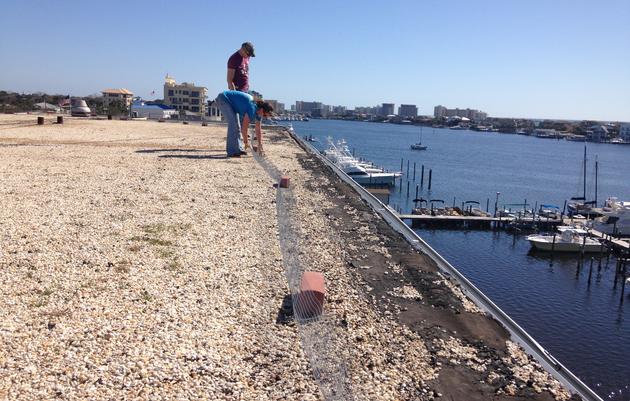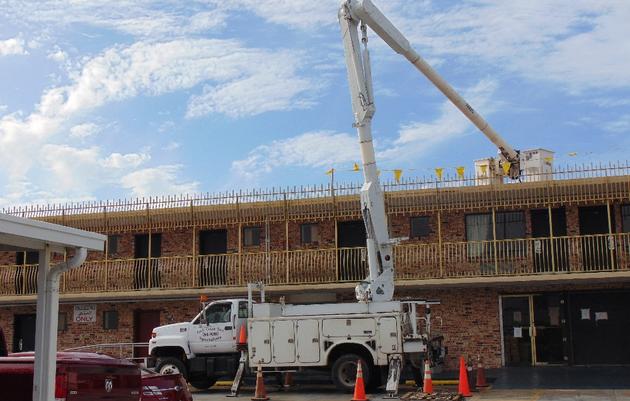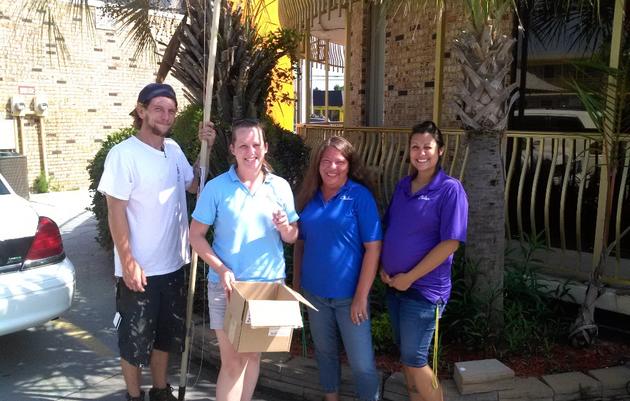This spring, Audubon Florida employees and volunteers worked together to install chick fencing along the 1,100-foot rooftop perimeter of a primary school in the Florida Panhandle. With the help of Gulf Power, who supplied the heavy equipment, over 600 pounds of bricks and chicken wire were lifted onto the roof and installed along the perimeter. This large-scale project aims to end the occurrence of chicks falling from the rooftop or being washed down storm drains and to increase the chicks’ chances of survival.
The Florida panhandle is an important breeding ground for threatened Least Terns. These birds prefer to nest on the flat, open beaches along the Gulf of Mexico. But due to increasing shore development, and larger numbers of people visiting these beaches, suitable nesting habitat is becoming harder for nesting Least Terns to find.
In response, these adaptable birds have taken to nesting at alternative sites like gravel rooftops. Flat gravel roofs resemble their natural nesting habitat in that they are open and have little vegetation. While rooftops provide certain advantages that beaches do not, they also come with their own set of dangers.
The SS Dixon Primary School in Pace, Florida is home to one of these alternative nesting sites. The school’s expansive gravel roof has been home to a large colony of Least Terns over the past few breeding seasons.
Audubon Florida rooftop program volunteer, Daniel Stangeland “adopted” this site two years ago. During his surveys, he observed that many chicks were falling to the ground from the roof edge. Sadly, fallen chicks face imminent threats of overexposure, dehydration, predators, and getting run over by vehicles. Thanks to Daniel's inspiring effort monitoring these birds, Audubon was able to coordinate the necessary resources and work with the school and the utility company to improve the rooftop nesting environment.
Projects like this make Audubon Florida's Rooftop Nesting Program an essential component of a successful breeding season for this threatened species.
Are you interested in helping the Florida Panhandle Rooftop Nesting Program? Volunteers are needed from Panama City to Pensacola. Contact Emily McKiddy at (608) 332-3802 or emckiddy@audubon.org.







